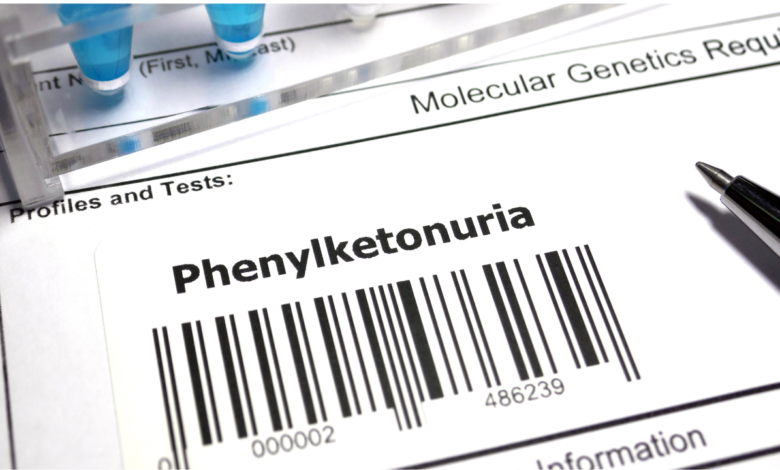Phenylketonuria (PKU) Screening

What is Phenylketonuria (PKU) Screening?
Phenylketonuria (PKU) screening is a mandatory test performed on newborns to detect the presence of a rare genetic disorder called phenylketonuria. This disorder prevents the body from breaking down a specific amino acid called phenylalanine. If left untreated, PKU can lead to severe intellectual disability, seizures, and other neurological problems.
Why Phenylketonuria (PKU) Screening is required?
Early detection of PKU is crucial for preventing its severe consequences. By identifying newborns with PKU early, appropriate dietary restrictions can be implemented to prevent the buildup of phenylalanine in the blood. This can significantly reduce the risk of intellectual disability and other complications.
which are the method of Phenylketonuria (PKU) Screening?
PKU screening is typically performed using a blood sample taken from the newborn’s heel. The sample is then tested for elevated levels of phenylalanine in the blood.
who should go for Phenylketonuria (PKU) Screening?
PKU screening is mandatory for all newborns in most countries. It is a routine part of newborn care and is typically performed within the first few days of life.
What are the results of Phenylketonuria (PKU) Screening?
A positive PKU screening result indicates that the newborn may have PKU. If the screening result is positive, further testing is usually required to confirm the diagnosis.
What are the components of Phenylketonuria (PKU) Screening?
PKU screening typically involves testing for elevated levels of phenylalanine in the blood. In some cases, additional tests may be performed to confirm the diagnosis and rule out other conditions that can cause elevated phenylalanine levels.





